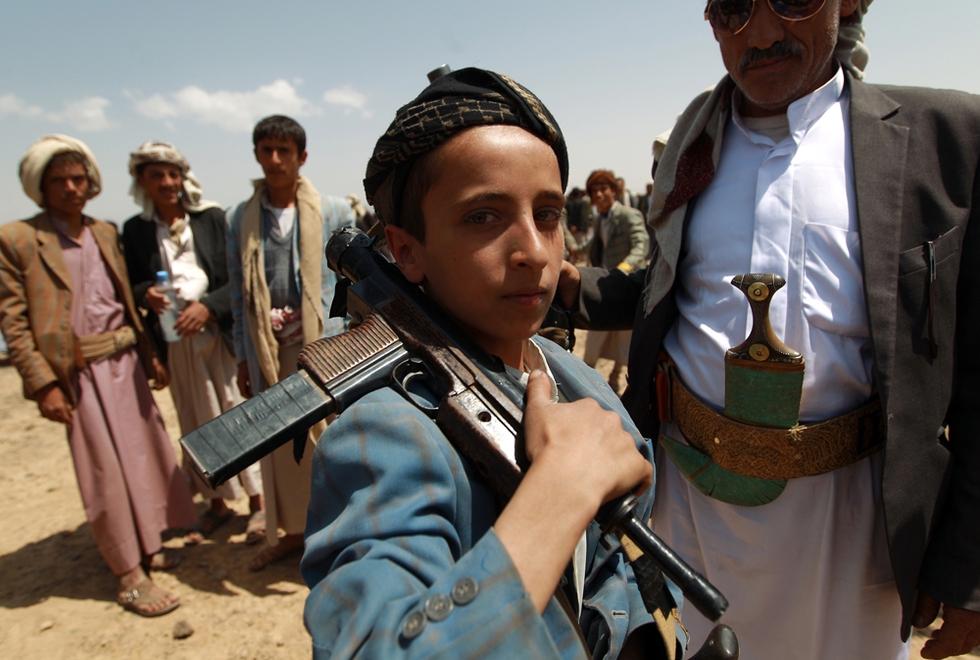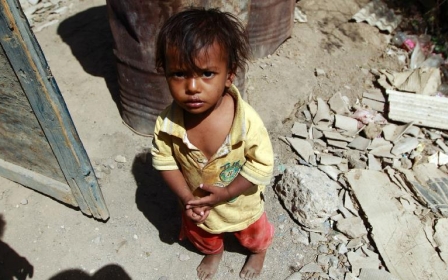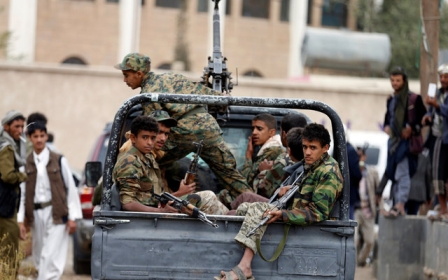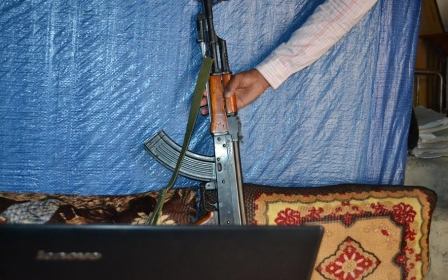Houthi rebels recruit children to fight in Yemen’s war: Amnesty

Houthi militias in Yemen are recruiting child soldiers without their families' knowledge, according to an Amnesty International report on Tuesday. It said that boys as young as 15 are being indoctrinated at religious schools for frontline combat.
Based on eye-witness accounts, Amnesty said that the rebels had recruited a group of boys between 15 and 17 in Yemen's capital, Sanaa, which they overran in September 2014.
The boys' families later discovered that their children were near the Saudi-Yemen border with the rebel group.
“It is appalling that Houthi forces are taking children away from their parents and their homes, stripping them of their childhood to put them in the line of fire where they could die,” said Samah Hadid, deputy director at Amnesty International’s Beirut regional office.
This is not the first time the Houthis have been accused of using child soldiers, which is a violation of international law. In 2015, the UN estimated that 72 percent of children fighting in Yemen were fighting for the rebels.
The rest have either been recruited by militant organisations or local anti-Houthi resistance forces, which are backed by the Saudi-led coalition that has been bombing Yemen since March 2015.
Teenagers encouraged to join 'jihad'
Yemeni journalist Afrah Nasser told Middle East Eye that her relatives had also been singled out for recruitment by the rebels.
“The Houthis came and knocked on the door, and demanded that my two cousins join the ‘jihad’. They are still teenagers, you know. It's so sad," she said.
"I have other two cousins whose parents worked hard to help them escape Sanaa, so they were not forcibly recruited by the Houthis. They are now displaced as a result of this. One cousin is in Saudi Arabia and the other is in Ethiopia,” she added.
Nasser said the family had previously feared speaking out to avoid repercussions.
According to Amnesty, four children under 18 were taken and sent to the Saudi-Yemen border to receive religious schooling that encouraged them to "join front-line battles to defend Yemen against Saudi Arabia”.
Families of child soldiers are worried about repercussions if they speak out, said one of the boys' fathers.
“Many children [are recruited] but people don’t dare to talk or follow up. They’re afraid of being detained,” he told Amnesty.
Rising levels of poverty
Yemen's bitter civil war has pitted supporters of President Abd Rabbuh Mansour Hadi - backed by the Saudi-led coalition - against the Houthi rebels, who receive support from Iran.
A bombing campaign by the Saudi-led coalition, as well as shelling on the ground by the Houthis, has devastated large parts of Yemen and has left seven million people on the brink of famine.
In this context, Amnesty reported that Houthi rebels have stepped up their child recruitment strategies, promising money and security to the families of child recruits.
“Many children [are recruited] but people don’t dare to talk or follow up. They’re afraid of being detained”
According to the report, the group promises families $80-$120 per child per month if the child is “martyred” in fighting at the frontline.
"[The child soldiers] are just excited to shoot Kalashnikovs...and wear military uniforms," one witness told Amnesty.
"If the son dies at the front line, a monthly salary and a gun are given to the father to keep them quiet."
Meanwhile, a new UN report on Tuesday said that nearly 1,500 children have been recruited by Yemen's warring parties, mostly by Houthis rebels.
The UN has verified the recruitment of 1,476 children, all boys, between 26 March, 2015 and 31 January, 2017, said a statement by the spokesperson for the UN High Commissioner for Human Rights, Ravina Shamdasani.
New MEE newsletter: Jerusalem Dispatch
Sign up to get the latest insights and analysis on Israel-Palestine, alongside Turkey Unpacked and other MEE newsletters
Middle East Eye delivers independent and unrivalled coverage and analysis of the Middle East, North Africa and beyond. To learn more about republishing this content and the associated fees, please fill out this form. More about MEE can be found here.




